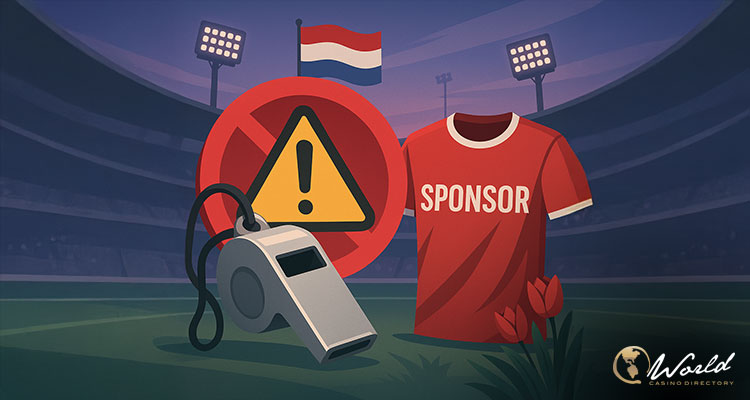Dutch gambling authorities are preparing for the full implementation of the country’s ban on sports sponsorship by gambling operators, set to take effect on 1 July 2025. The Kansspelautoriteit (KSA), the Netherlands’ gambling regulator, has confirmed that it will adopt a stricter enforcement stance over the summer and will take immediate action against any violations.
The measure marks the final step in a broader advertising reform process that began two years ago. On 1 July 2023, the Netherlands enacted a sweeping ban on non-targeted advertising for online gambling across public places, television, radio, and other accessible environments. However, recognizing that sports sponsorships often involve long-term contracts, the KSA allowed a two-year transition period for such agreements, ending this summer.
Scope of the sponsorship ban:
Under the new rules, all forms of gambling sponsorship in sport will be outlawed. This includes promotional deals involving individual athletes, teams, leagues, competitions, club shirts, and even advertising materials such as banners or branded accessories. The regulation applies universally across all sports as part of the broader initiative introduced in July 2023.
According to the KSA, no new sponsorship agreements involving gambling companies have been allowed since July 2023. From this coming July, even existing deals will be considered in breach of the law. The regulator has proactively contacted licensed online gambling operators to remind them of their obligations and confirm whether any promotional deals remain in effect.
The KSA has sent formal letters to Dutch-licensed online gambling providers and is working closely with industry trade bodies to resolve any final questions about the transition. At the same time, the regulator made it clear it will not tolerate creative attempts to bypass the rules.
KSA Chair Michel Groothuizen emphasized the importance of the law, stating in the regulator’s press release: “This law was drawn up to protect young adults and other vulnerable groups. You do that by preventing them from being exposed to gambling advertising, regardless of who the advertising comes from. We at KSA will be very vigilant about that.”
He also noted that in other countries with similar bans, gambling companies have attempted to sidestep regulations by using indirect branding tactics, such as promoting foundations or unrelated businesses tied to their corporate structures. For example, in Belgium, clubs like Club Brugge KV and RSC Anderlecht were warned for using foundation logos in place of direct sponsorship from betting brands. The KSA made it clear that such tactics would not be tolerated in the Netherlands.
Gambling restrictions expand as player protection takes priority:
The sponsorship ban is part of a larger national push for stronger consumer safeguards in the Dutch online gambling market, which opened in 2021. Since then, a series of regulatory steps have been introduced, including a ban on untargeted ads, new deposit limits for players, and a rise in the operator tax rate to 34.2% GGR in 2025, increasing further to 37.8% next year.
These changes have had a measurable impact. Some companies, like Flutter, have exited the market entirely, withdrawing brands like Tombola. LiveScore Bet also announced its departure, while even the state-owned Holland Casino expressed concern about budget pressures caused by the escalating levies.
Despite these efforts, a recent review of the Netherlands Online Gambling Act (published in November 2024) concluded that current protection measures have not yet yielded sufficient results, prompting ongoing reforms.
As the full sponsorship ban looms, the KSA continues to underscore its priority: shielding vulnerable populations from the influence of gambling marketing. The coming months will test how rigorously the industry adheres to the rules and how effectively the regulator can enforce compliance.


